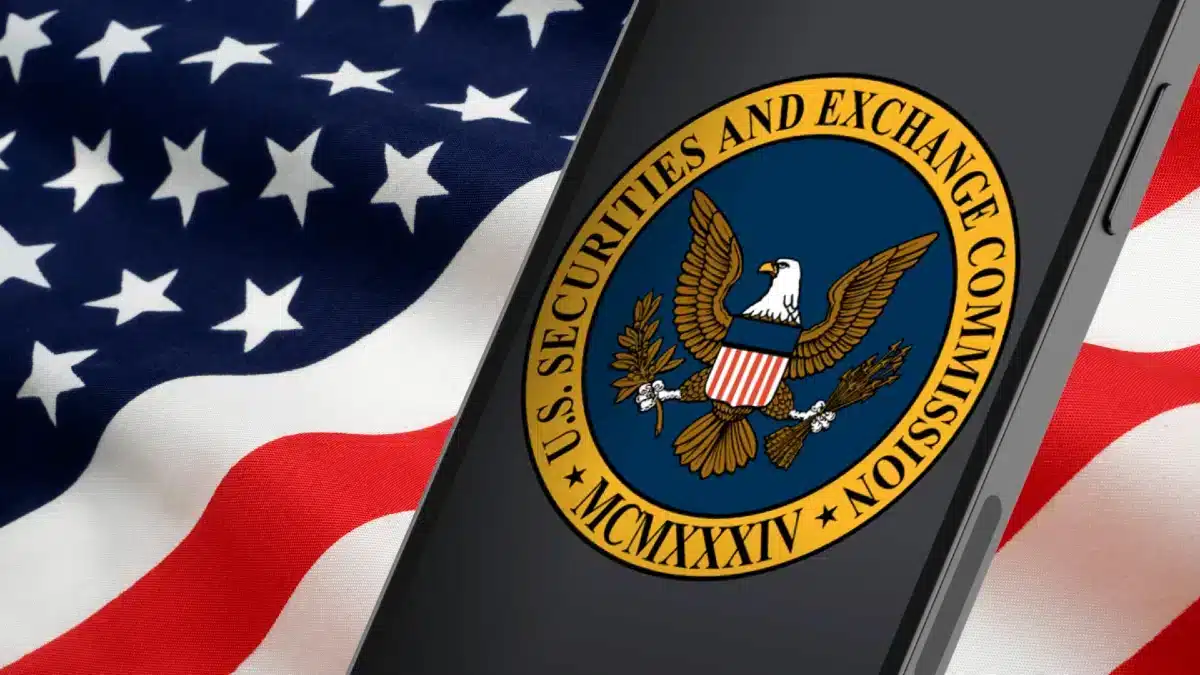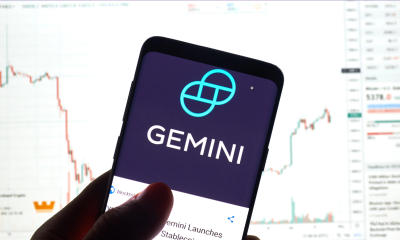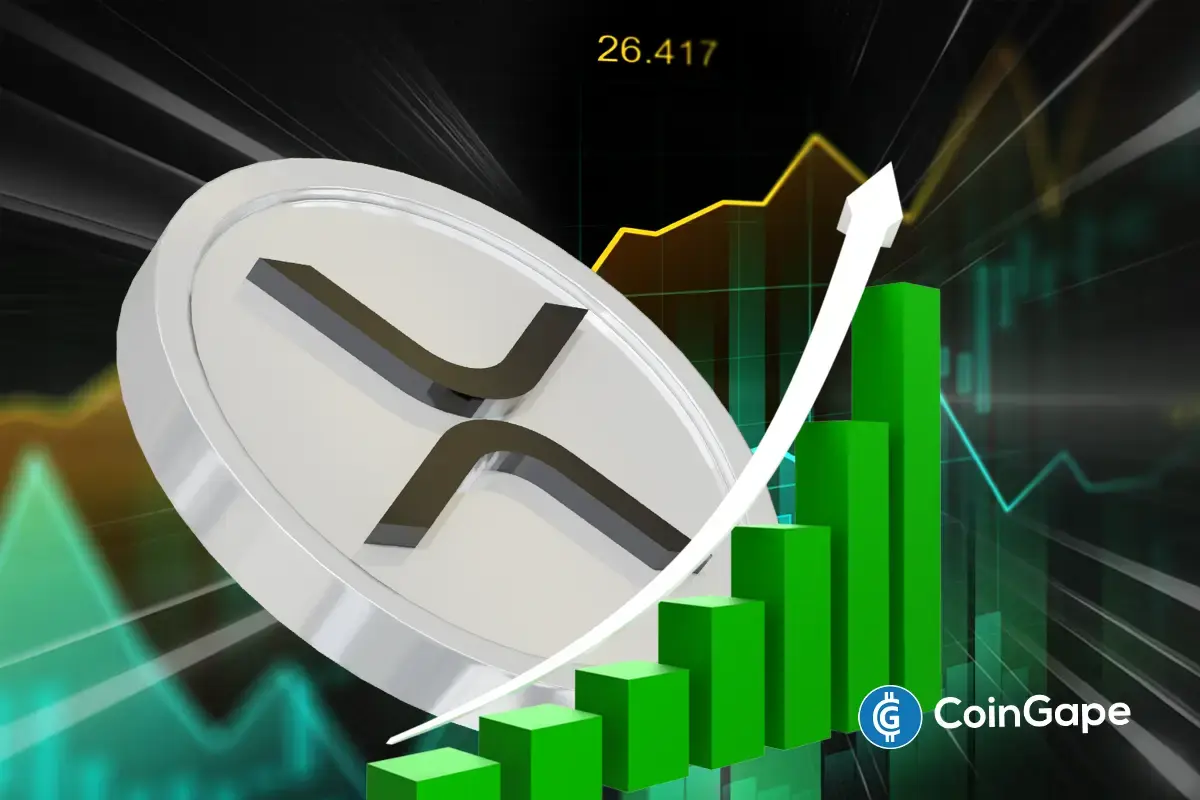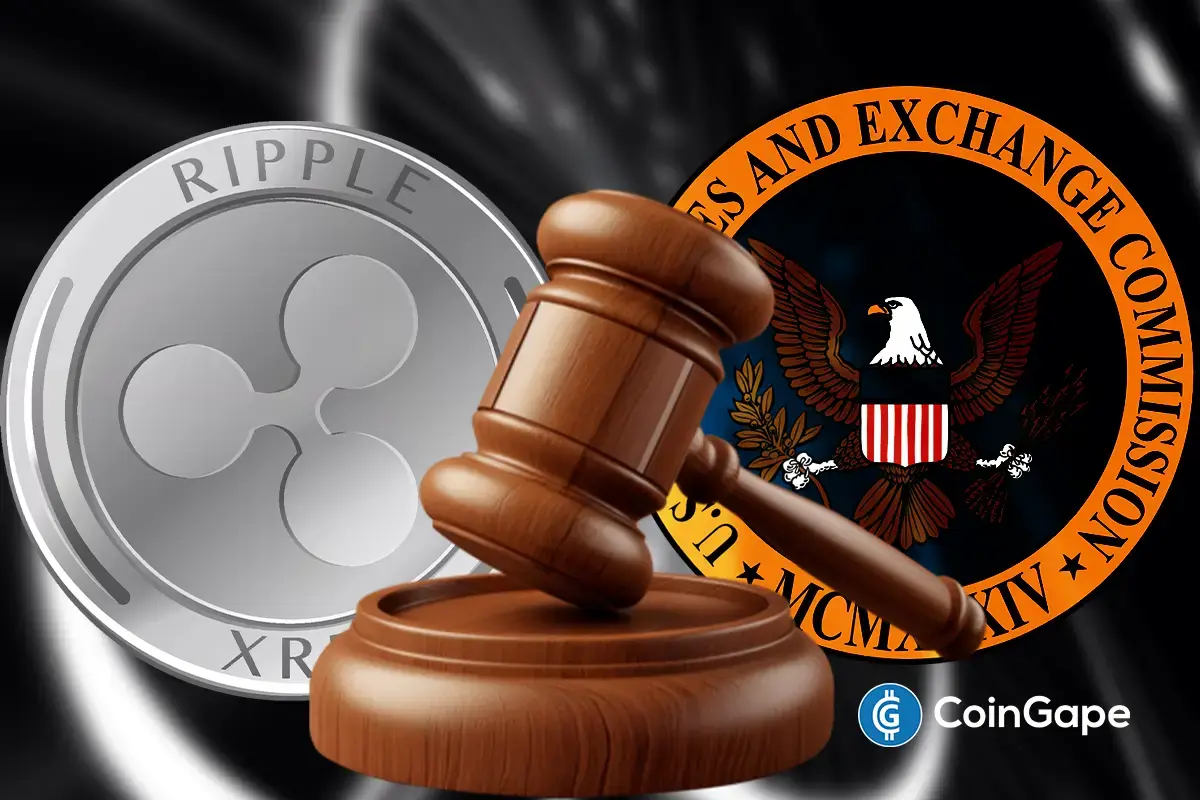Regulation
BitClave Investors Get $4.6M Back In US SEC Settlement Distribution

BitClave investors have started receiving $4.6 million in repayments from the U.S. Securities and Exchange Commission (SEC), following a settlement reached in 2020. The SEC announced on Nov. 20 that payments from the BitClave Fair Fund had been disbursed to eligible investors harmed during the company’s 2017 initial coin offering (ICO).
Pro-XRP lawyer and online commentator “MetaLawMan” criticized the SEC’s stance on digital assets, stating on social media, “Here we go again with ‘digital asset securities.’ Unbelievable.” The lawyer’s statement reflects ongoing industry frustrations over the SEC’s regulatory approach to cryptocurrencies.
BitClave Investors Get $4.6M Back in US SEC Settlement
The US SEC assured the public that $4.6 million was returned to investors who filed the claims and were eligible for the refunds. These funds were agreed upon in 2020 after the SEC accused BitClave of conducting an unregistered ICO.
The company’s initial coin offering (ICO) in 2017 brought in $25.5 million in only 32 seconds and distributed its Consumer Activity Token (CAT) to thousands of buyers. The SEC therefore claimed that the ICO was an unregistered securities transaction because potential investors were induced to invest in the CAT token with an expectation of appreciation of its value.
Under the settlement, BitClave will have to refund the money it raised and also pay $4 million in fines and interest. In between these settlements, John Deaton has accused the regulator of using laws that were set in 1933.
The Fair Fund was therefore created to ensure that the funds are returned to the affected investors. The claims submission period closed in August 2023, and the eligible investors received the information on the claims in March 2024. The Securities and Exchange Commission posted on its social media accounts that the payment has been made, and “the checks are in the mail.”
BitClave Settlement Included Penalties and Token Destruction
In the settlement, BitClave did not accept or reject the accusations made by the SEC but agreed to cough up $29 million. This total consisted of the $25.5 million that was generated in the ICO and the additional $4 million in fines.
Concurrently, the company also committed to burning 1 billion of the catalyst tokens that have not been distributed and to ask exchanges to delist the token.
The Securities and Exchange Commission therefore pointed out that by February 2023, BitClave had only remitted $12m to the Fair Fund, thus leaving questions on the balance of $7.4m. Neither the SEC nor the fund administrator gave further details on the matter, and it is still uncertain as to how the outstanding payment will be collected.
US SEC Maintains Strict Regulatory Stance on Crypto
The US SEC has continued to enforce regulations on crypto companies under the Biden administration, with over 100 enforcement actions taken against the industry. BitClave’s settlement, subsequently, is one of many cases where the regulator has targeted unregistered ICOs and other alleged securities violations.
BitClave’s case, handled under former SEC Chairman Jay Clayton, emphasized the agency’s view that many digital assets fall under securities laws. The CAT white paper described potential value increases, which the regulator argued encouraged speculative investment in an unregistered security.
As the US SEC faces criticism, President-elect Donald Trump has expressed plans to reshape crypto oversight. Trump has promised to remove current SEC Chair Gary Gensler and is reportedly considering creating a new White House position dedicated to cryptocurrency policy.
Disclaimer: The presented content may include the personal opinion of the author and is subject to market condition. Do your market research before investing in cryptocurrencies. The author or the publication does not hold any responsibility for your personal financial loss.
Regulation
Japan Set To Classify Cryptocurrencies As Financial Products, Here’s All

Cryptocurrency investors in Japan are bracing for impact following a plan to reclassify digital assets as financial products. While the plan has elicited excitement from cryptocurrency enthusiasts in the Far East, the ambitious plan will have to scale several legislative hurdles.
Japan Targets Reclassification Of Cryptocurrencies As Financial Products
According to a report by Nikkei, Japan’s Financial Services Agency (FSA) is inching toward classifying cryptocurrencies as financial products. Per the report, the FSA intends to achieve the reclassification via an amendment to the Financial Instruments and Exchange Act.
Currently, digital assets in Japan are considered crypto assets conferred with property rights and seen as payment means. Under the FSA’s plans, cryptocurrencies in Japan will be treated as financial products in the same manner as traditional financial products.
The FSA says it will adopt a slow and steady approach toward the reclassification, carrying out “a private expert study group” to test the waters. If everything goes according to plan, the FSA will submit the amended bill to Parliament in early 2026.
The classification of cryptocurrencies as financial products will have far-reaching consequences for the local ecosystem. Experts say treating cryptocurrencies as financial products will bring Japan closer to a crypto ETF launch amid a changing regulatory landscape.
Furthermore, the move may lower current cryptocurrency taxation for local investors since existing capital market rules will apply to the asset class.
A Fresh Bill For Crypto Insider Trading Is Underway
Apart from the reclassification, the FSA disclosed plans for new legislation against insider trading. The move flows treating cryptocurrencies as financial products and will strengthen existing investor protection rules.
“It is a direction to establish a new insider trading regulation that prohibits trading based on unpublished internal information,” said the FSA. “We will develop laws to prevent unfair transactions.”
However, Japan’s cryptocurrency scene is heating up to a boil, driven by local and international players. Last week, stablecoin issuer Circle secured approval from the FSA for USDC with top exchanges set to list the stablecoin.
Japan’s Metaplanet has tapped Eric Trump to join its Strategic Board of Advisors as it continues to load up Bitcoin.
Disclaimer: The presented content may include the personal opinion of the author and is subject to market condition. Do your market research before investing in cryptocurrencies. The author or the publication does not hold any responsibility for your personal financial loss.
Regulation
Kentucky Governor Signs Off On ‘Bitcoin Rights’ Bill, Strengthening Crypto Protections


In what is being dubbed a major development in the crypto regulation space, the Governor of the US state of Kentucky, Andy Beshear, has signed the ‘Bitcoin Rights’ bill into law. The law promises to safeguard protections for Bitcoin (BTC) users.
Bitcoin Rights Bill Comes Into Effect
Crypto regulations continue to evolve under pro-crypto US President Donald Trump’s administration. In the latest development, Kentucky has become the newest state to enshrine protections for digital asset users.
In an X post published on March 24, crypto advocacy group Satoshi Action Fund announced that Governor Beshear had signed the much-anticipated Bitcoin Rights bill into law. The post stated:
The right to self-custody, run a node, and use of digital assets is now protected for millions of Americans without fear of discrimination.
The bill was first introduced to the Kentucky House by Rep. Adam Bowling on February 19. According to the bill’s description, it seeks to safeguard users’ rights to use digital assets and self-custody wallets. Additionally, it aims to prohibit local zoning changes that discriminate against crypto mining operations.
The legislation outlines guidelines for running a digital asset node and excludes digital asset mining from money transmitter license requirements. It also clarifies that crypto mining or staking is not considered an offer or sale of securities.
On February 28, the bill passed Kentucky’s House of Representatives with a unanimous vote of all 91 representatives in favor. It later passed the Kentucky Senate on March 13, receiving backing from all 37 senators.
Kentucky’s proactive stance toward cryptocurrencies isn’t new. Earlier this year, the state became the 16th US state to introduce legislation seeking to create a Bitcoin strategic reserve.
Meanwhile, neighboring state Arizona is also joining the crypto movement. A recent X post by Bitcoin Laws revealed that Arizona’s House Rules Committee has passed two Bitcoin reserve bills — SB1373 and SB1025. These bills will now head to a full floor vote.
Renewed Optimism Under Trump Administration
Following Trump’s victory in the November presidential election, cryptocurrency regulations in the US are evolving rapidly, with many states introducing legislation aimed at strengthening their digital asset ecosystems and attracting crypto businesses.
Positive changes in crypto regulations are encouraging industry businesses to expand. For instance, leading crypto trading platform Coinbase recently announced plans to hire 1,000 employees in the US.
The Trump administration has also witnessed several lawsuits being dropped against major crypto entities, including Kraken, Coinbase, Gemini, and others. At press time, Bitcoin trades at $87,399, down 0.2% in the past 24 hours.

Featured Image from Unsplash.com, chart from TradingView.com

Editorial Process for bitcoinist is centered on delivering thoroughly researched, accurate, and unbiased content. We uphold strict sourcing standards, and each page undergoes diligent review by our team of top technology experts and seasoned editors. This process ensures the integrity, relevance, and value of our content for our readers.
Regulation
US SEC Drops Charges Against Hawk Tuah Girl Hailey Welch

Hawk Tuah girl Hailey Welch, known for her association with the controversial $HAWK token, has been cleared of any wrongdoing after a lengthy investigation by the U.S. Securities and Exchange Commission (SEC). The SEC has decided not to press charges against Welch in connection with the rapid rise and subsequent collapse of the meme-based cryptocurrency.
US SEC Investigation Into Hawk Tuah Girl Concludes Without Charges
The SEC had launched an investigation into the $HAWK token after its dramatic price drop. The token, which was linked to Welch’s viral persona, initially saw a market cap surge to $490 million before crashing by over 90%. Investors who were impacted by the crash filed a lawsuit against those behind the project, alleging that the coin had been promoted and sold without proper registration.
Hawk Tuah girl Hailey Welch, who cooperated fully with the investigation, expressed relief after the SEC’s decision. “For the past few months, I’ve been cooperating with all the authorities and attorneys, and finally, that work is complete,” Welch told TMZ.
Her attorney, James Sallah, confirmed that the SEC had closed the case without any findings against her, adding that there would be no monetary sanctions or restrictions on Welch’s future involvement in cryptocurrency or securities.
This Is A Developing News, Please Check Back For More
Disclaimer: The presented content may include the personal opinion of the author and is subject to market condition. Do your market research before investing in cryptocurrencies. The author or the publication does not hold any responsibility for your personal financial loss.
-

 Altcoin22 hours ago
Altcoin22 hours agoGemini Crypto Exchange Announces Rewards For XRP Users, Here’s How To Get In
-

 Regulation20 hours ago
Regulation20 hours agoKentucky Governor Signs Off On ‘Bitcoin Rights’ Bill, Strengthening Crypto Protections
-

 Altcoin12 hours ago
Altcoin12 hours agoAnalyst Reveals Why The XRP Price Can Hit ATH In The Next 90 To 120 Days
-

 Bitcoin19 hours ago
Bitcoin19 hours agoWhy Bitcoin Seasoned Investors Are Accumulating — Analyst Evaluates BTC’s Current Phase
-

 Ethereum11 hours ago
Ethereum11 hours agoWhales Accumulate 470,000 Ethereum In One Week – Bullish Momentum Ahead?
-

 Market18 hours ago
Market18 hours agoCrypto Derivatives Get a Boost from US CFTC
-

 Market17 hours ago
Market17 hours agoCan Ethereum’s Utility Make a Comeback Against Bitcoin?
-

 Ethereum16 hours ago
Ethereum16 hours agoEthereum Playing Catch-Up? Bloomberg Examines ETH’s Struggles In New Report

















✓ Share: